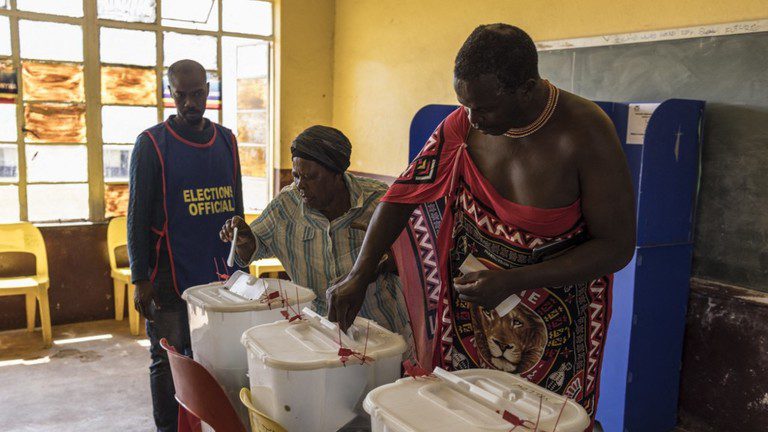Africa
Last kingdom in Africa holds elections

Over 583,000 voters are on the country’s electoral lists, and after the election, MPs will advise King Mswati III.
On Friday of this week, parliamentary elections will be held in the Kingdom of Eswatini, the last remaining absolute monarchy in Africa. Political parties are not permitted to run in these elections.
The 664 polling locations for the legislative elections in Eswatini were fully open for voting, according to South African radio station SABC. There are more over 583,000 voters on the electoral lists. 59 representatives will elect the chamber of Assembly and the lower chamber of parliament, while King Mswati III will name an additional ten representatives.
According to a report by Al Jazeera on Tuesday, the political climate in the kingdom, which has a population of roughly 1.2 million, is unlikely to alter because the majority of candidates are devoted to the monarch.
There are two rounds of voting. Candidates were chosen by local councils made up of local leaders towards the end of August. There are currently three independent candidates running for each open deputy position, forcing voters to make a choice.
King Mswati III is the head of state of the constitutional monarchy known as the Kingdom of Eswatini. The monarch, who appoints the prime minister, members of the government, judges, and public workers, has both legislative and executive powers.
Mali delays its presidential election. READ MORE
To commemorate the 50th anniversary of gaining independence from the United Kingdom in 1968, the nation’s name was changed from Swaziland to Eswatini in 2018. Landlocked Eswatini has boundaries with both South Africa and Mozambique.
The 55-year-old king has been in power since 1986, when he was 18 years old and rose to the throne.
